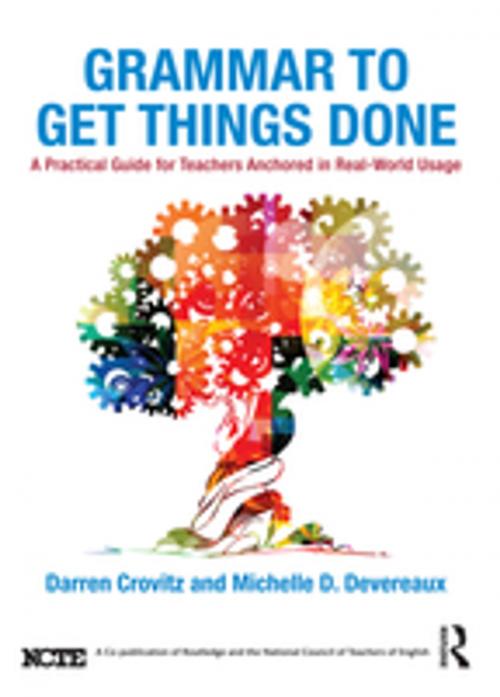Grammar to Get Things Done
A Practical Guide for Teachers Anchored in Real-World Usage
Nonfiction, Reference & Language, Language Arts, Literacy, Study Aids, ESL, Education & Teaching, Teaching, Teaching Methods| Author: | Darren Crovitz, Michelle D. Devereaux | ISBN: | 9781134836949 |
| Publisher: | Taylor and Francis | Publication: | November 10, 2016 |
| Imprint: | Routledge | Language: | English |
| Author: | Darren Crovitz, Michelle D. Devereaux |
| ISBN: | 9781134836949 |
| Publisher: | Taylor and Francis |
| Publication: | November 10, 2016 |
| Imprint: | Routledge |
| Language: | English |
CO-PUBLISHED BY ROUTLEDGE AND THE NATIONAL COUNCIL OF TEACHERS OF ENGLISH
Grammar to Get Things Done offers a fresh lens on grammar and grammar instruction, designed for middle and secondary pre-service and in-service English teachers. It shows how form, function, and use can help teachers move away from decontextualized grammar instruction (such as worksheets and exercises emphasizing rule-following and memorizing conventional definitions) and begin considering grammar in applied contexts of everyday use.
Modules (organized by units) succinctly explain common grammatical concepts. These modules help English teachers gain confidence in their own understanding while positioning grammar instruction as an opportunity to discuss, analyze, and produce language for real purposes in the world. An important feature of the text is attention to both the history of and current attitudes about grammar through a sociocultural lens, with ideas for teachers to bring discussions of language-as-power into their own classrooms.
CO-PUBLISHED BY ROUTLEDGE AND THE NATIONAL COUNCIL OF TEACHERS OF ENGLISH
Grammar to Get Things Done offers a fresh lens on grammar and grammar instruction, designed for middle and secondary pre-service and in-service English teachers. It shows how form, function, and use can help teachers move away from decontextualized grammar instruction (such as worksheets and exercises emphasizing rule-following and memorizing conventional definitions) and begin considering grammar in applied contexts of everyday use.
Modules (organized by units) succinctly explain common grammatical concepts. These modules help English teachers gain confidence in their own understanding while positioning grammar instruction as an opportunity to discuss, analyze, and produce language for real purposes in the world. An important feature of the text is attention to both the history of and current attitudes about grammar through a sociocultural lens, with ideas for teachers to bring discussions of language-as-power into their own classrooms.















